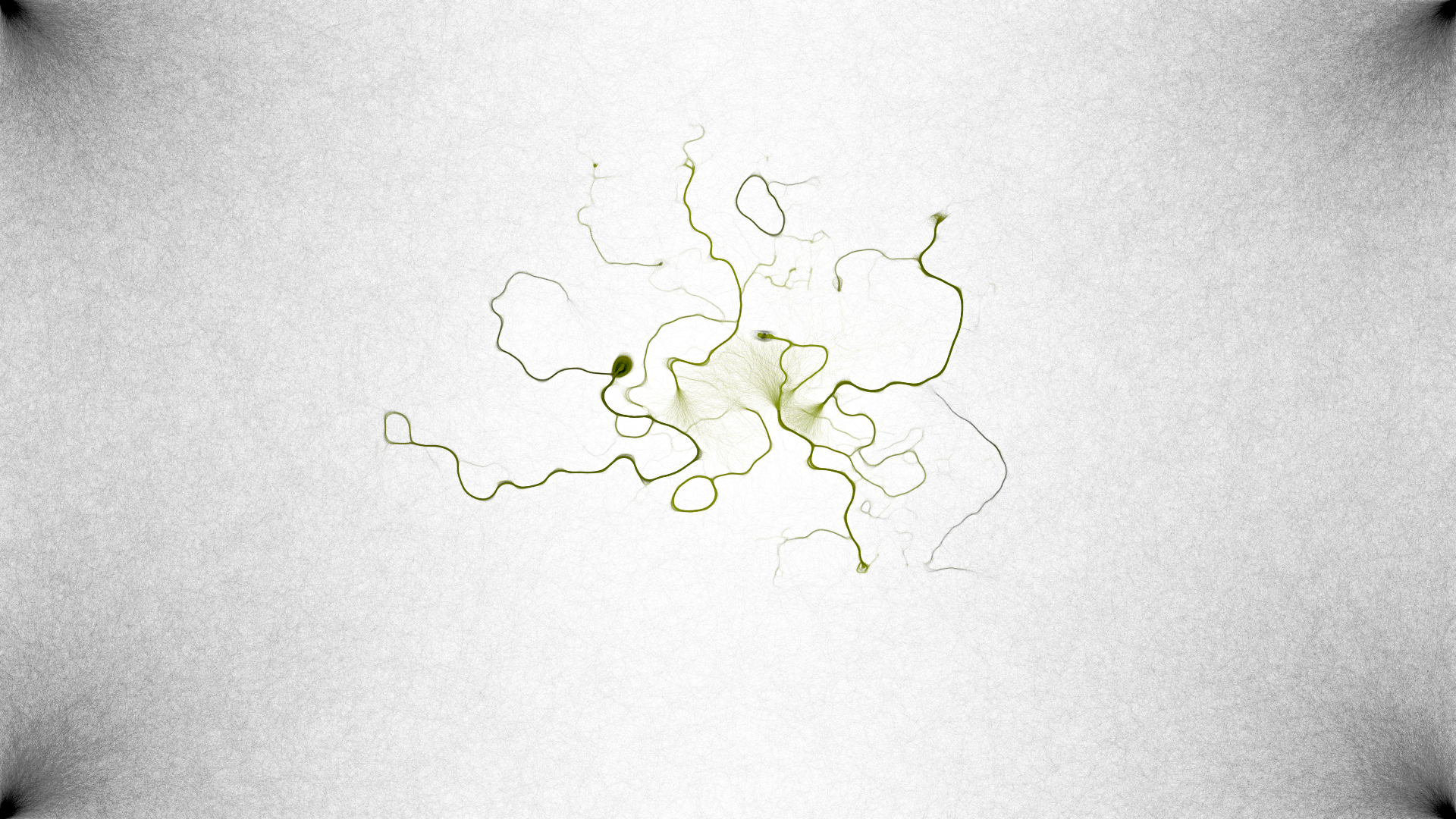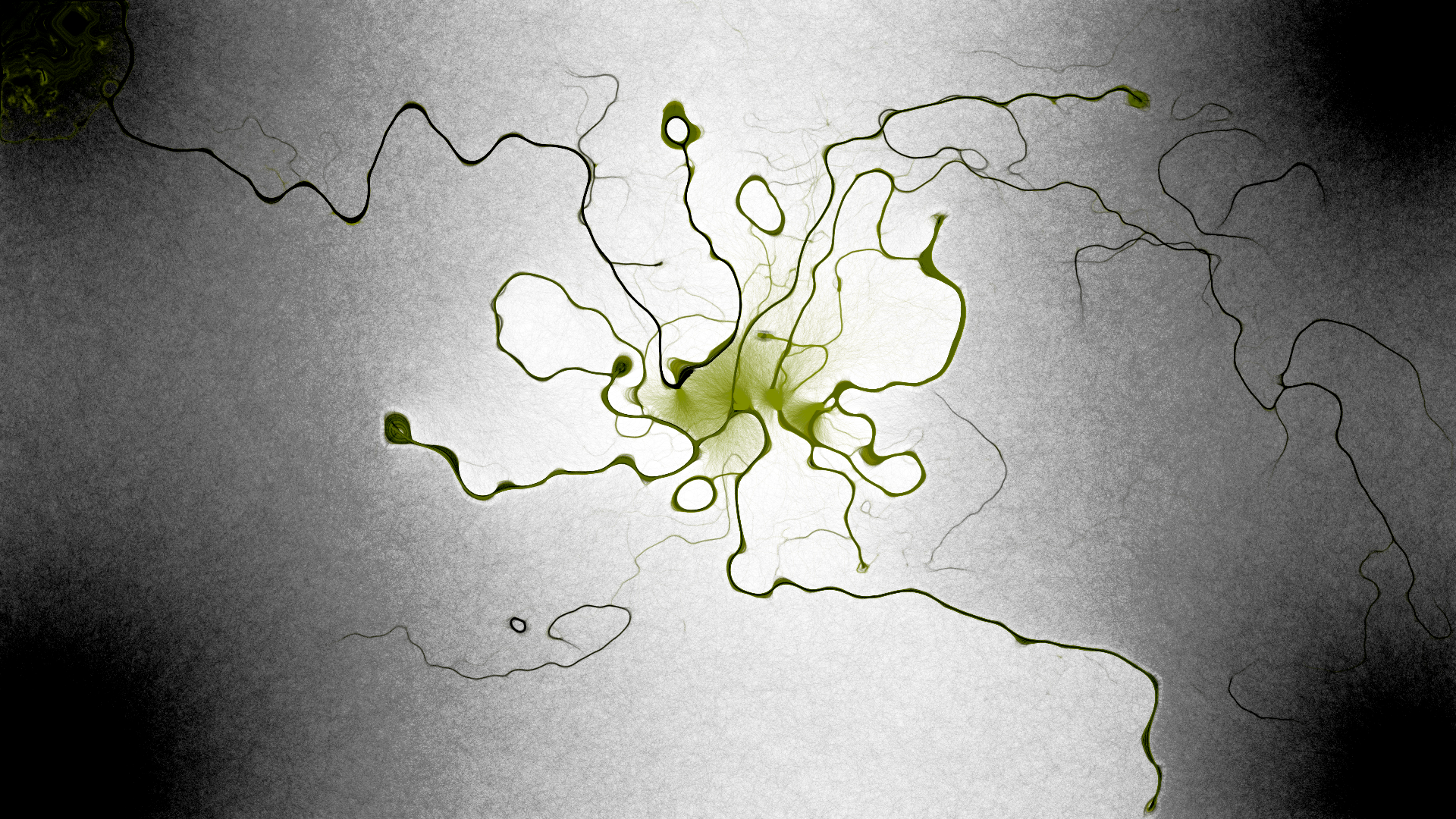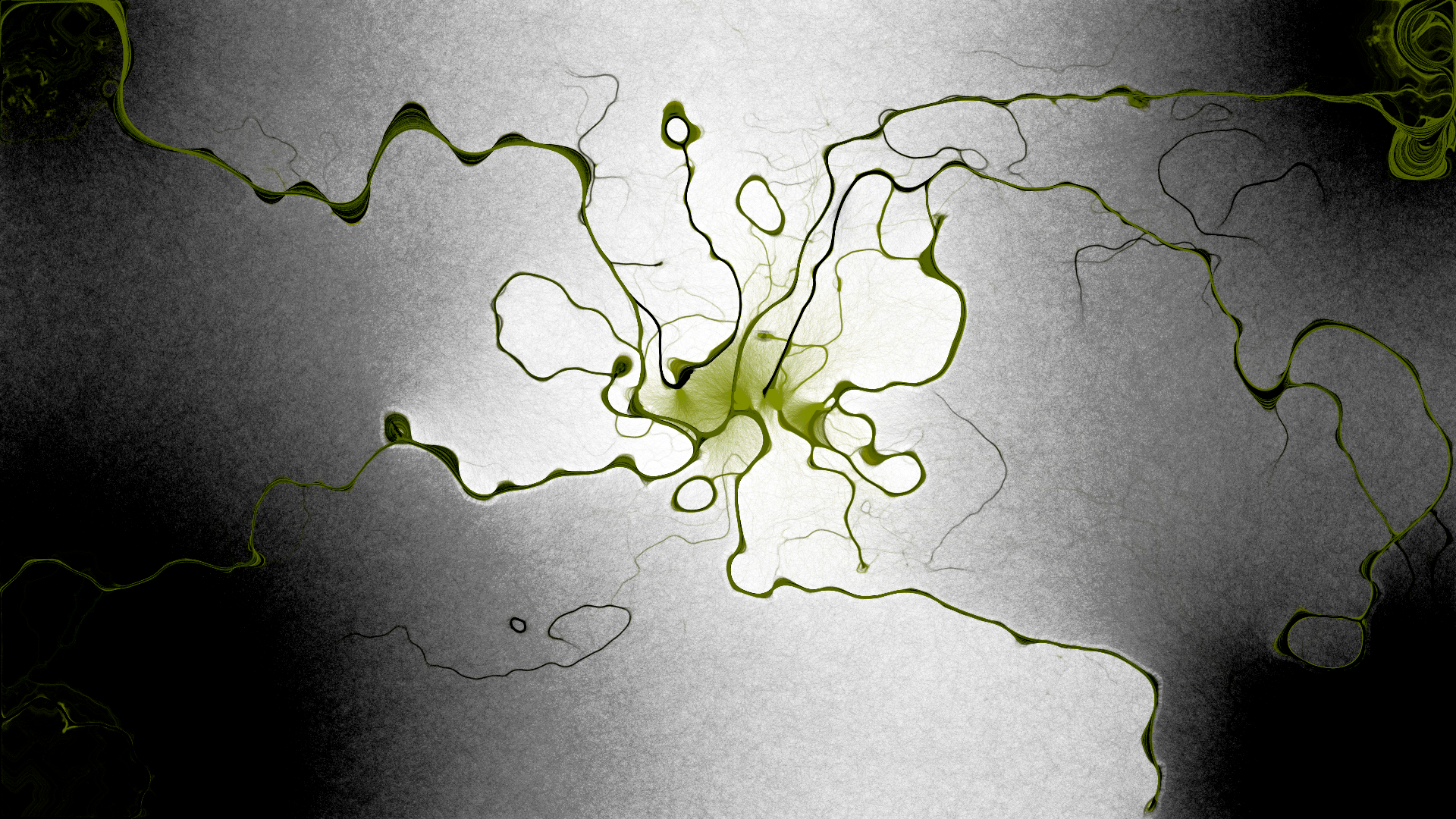Think Small
We tend to want to think big, but often, the small things, iterated over and over, are the most powerful and sustainable means of change. This is akin to the concept of the aggregation of marginal gains.
By understanding how ant colonies self-organize, with very little logic on the side of the individual ants, I tried to gain insight into the principle of emergence.
Thousands of ants start off randomly searching for food. Two simple rules create a feedback loop that appears to give them some kind of intelligence. The ants leaving the nest searching for food leave a pheromone that indicates such. Let's call this Pheromone-Home. Once an ant finds food (depicted green), it starts following the trails of Pheromone-Home to find its way home. While doing so, it leaves Pheromone-Food behind it. The ants that are looking for food can then start following Pheromon-Food to find food faster. The feedback loop is complete. As time goes on, the slight random divergences lead to the ants finding shortcuts. These are signaled by the higher traffic, and therefore more pheromones, on paths that find more food.
Technical Details
Technology: Java, Processing



